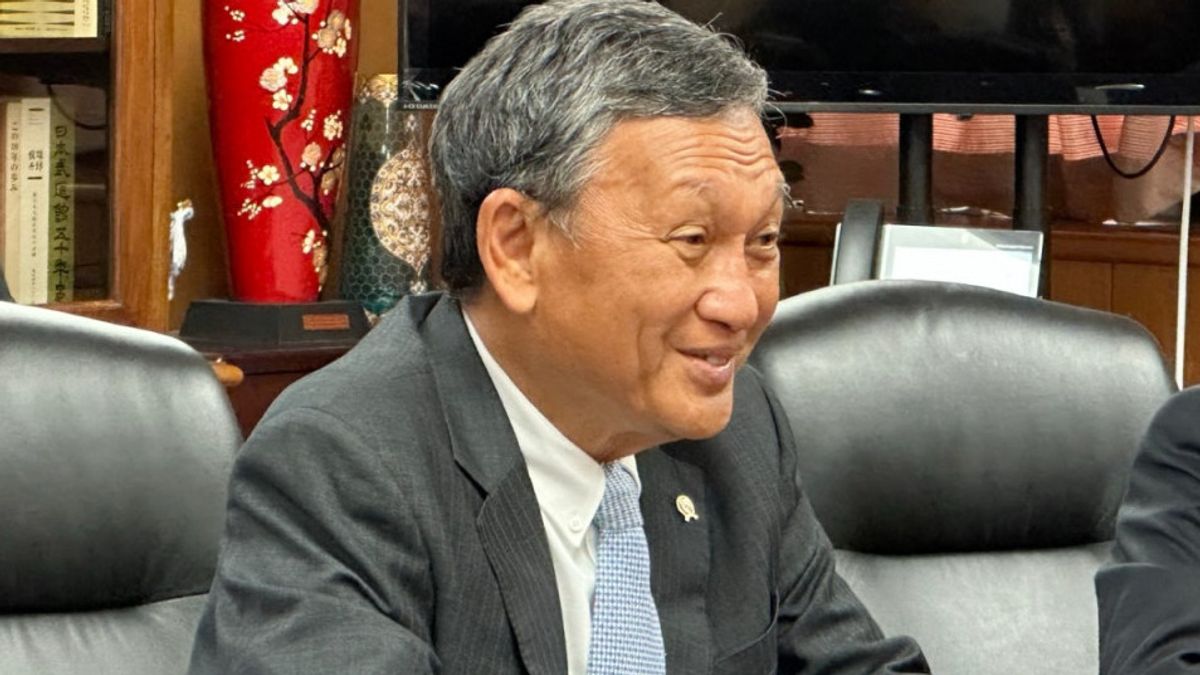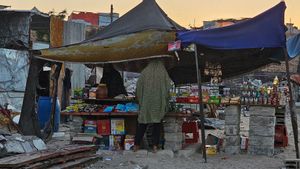JAKARTA - Minister of Energy and Mineral Resources (ESDM) Arifin Tasrif, reiterated Indonesia's commitment to reducing greenhouse gas (GHG) emissions when he spoke in Japan at the Nikkei Future of Asia Forum, last Friday, May 24.
Arifin said that Indonesia is committed to reducing GRK emissions and achieving Net Zero Emission (NZE) based on national conditions and capabilities in the 2060s or 2070s.
"Indonesia has issued an Enhanced National Determined Contribution (ENDC) which will further reduce emissions in the energy sector," said Arifin.
In addition to the ENDC, the Ministry of Energy and Mineral Resources has built an energy sector NZE Roadmap to achieve the target of reducing emissions and implementing a clean energy transition.
"This roadmap consists of the development of renewable energy, carbon reduction programs, early retirement of Steam Power Plants (PLTU), electrification, energy efficiency, as well as CCS/CCUS," he explained.
In achieving the NZE target and the implementation of the Roadmap, Arifin admitted that his party still encounters various challenges. Arifin said, Indonesia has various energy sources, both hydrocarbon-based and clean renewable energy.
"Indonesia is blessed with hydrocarbon-based energy such as petroleum, natural gas, and coal, and renewable energy, namely hydro energy, geothermal, solar, wind, and bioenergy. But now the question is how to use it," said Arifin.
Arifin then explained that several programs have been implemented, such as the construction of electricity interconnect infrastructure, natural gas infrastructure, massive natural gas exploration, PLTU phase down programs, Roof and Floating PLTS, development of PLTP and hydropower plant, electric vehicle ecosystem, and CCS/CCUS pilot project targeted to operate by 2030.
Regarding financing efforts, there have been several initiatives, namely JETP, AZEC, and IPEP which are currently underway. However, Arifin added, financial support is still needed to accelerate NZE's achievement.
"In addition, the development of technology on an industrial scale needs to be accelerated and made easier to maximize the use of renewable energy. Indonesia is expanding the downstream mineral processing industry to build ecosystems and supply chains that support energy transitions, as well as creating new jobs," he added.
Indonesia also encourages downstream mineral mining commodities that support the development of a new and renewable energy ecosystem.
"In the mineral mining sector, we support downstreaming of mineral commodities that can support the development of the EBT ecosystem and energy transition," he said.
SEE ALSO:
In addition, the transition to electric vehicles is seen as the main strategy for decarbonizing highway transportation, which offers the dual benefit of reducing emissions while supporting the decarbonization of the electricity sector.
"The transportation sector will be the target of reducing emissions, especially with the increasing use of transportation. We no longer want to increase emissions in our atmosphere," he said.
At the end of the session, Arifin said that the clean energy transition program must have a positive impact on the community.
"Cooperation between developed, developing and not developing must be strengthened to fill each other's gaps, so that there is no one left behind," he concluded.
The English, Chinese, Japanese, Arabic, and French versions are automatically generated by the AI. So there may still be inaccuracies in translating, please always see Indonesian as our main language. (system supported by DigitalSiber.id)
















